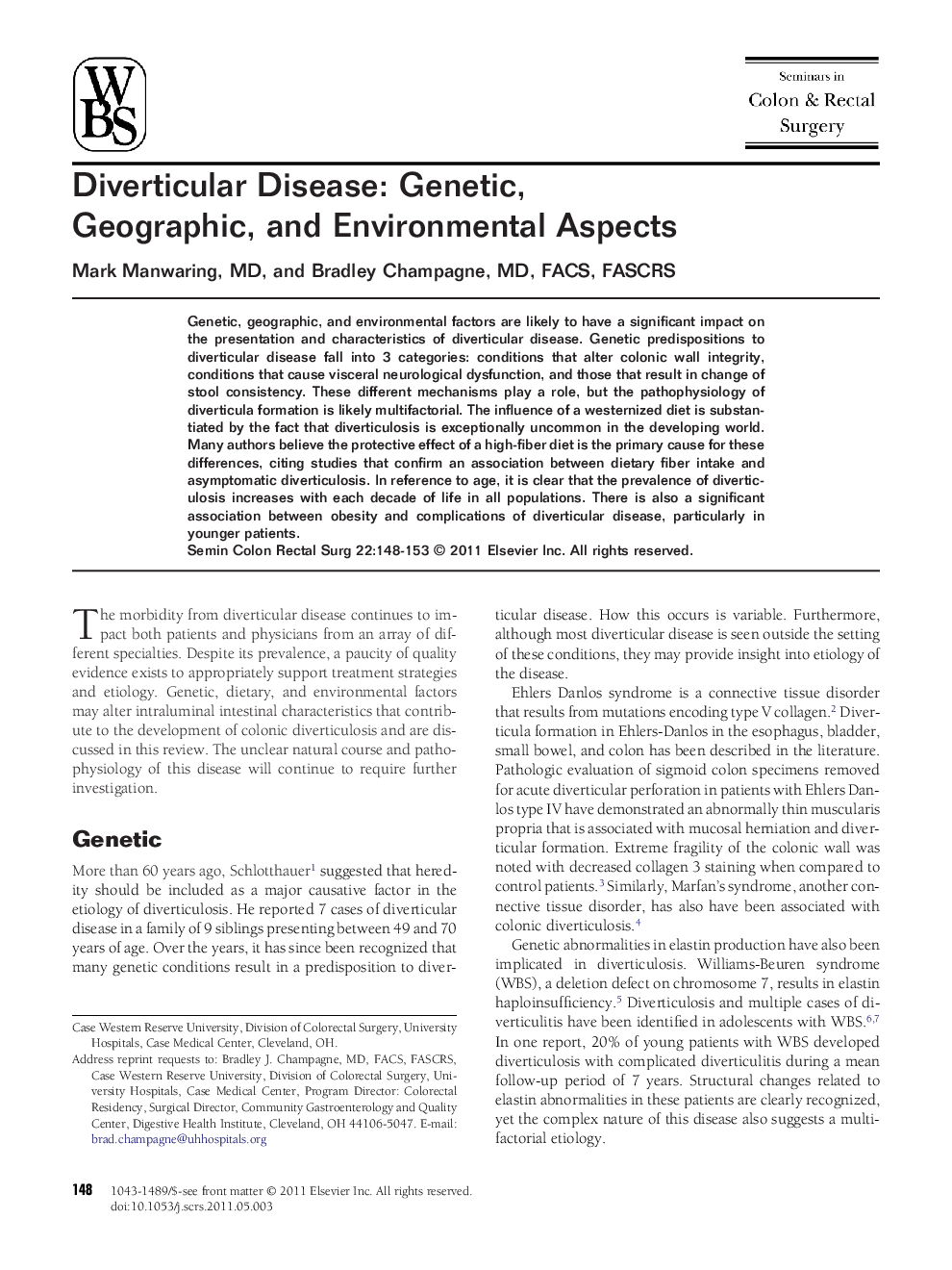| Article ID | Journal | Published Year | Pages | File Type |
|---|---|---|---|---|
| 3319453 | Seminars in Colon and Rectal Surgery | 2011 | 6 Pages |
Abstract
Genetic, geographic, and environmental factors are likely to have a significant impact on the presentation and characteristics of diverticular disease. Genetic predispositions to diverticular disease fall into 3 categories: conditions that alter colonic wall integrity, conditions that cause visceral neurological dysfunction, and those that result in change of stool consistency. These different mechanisms play a role, but the pathophysiology of diverticula formation is likely multifactorial. The influence of a westernized diet is substantiated by the fact that diverticulosis is exceptionally uncommon in the developing world. Many authors believe the protective effect of a high-fiber diet is the primary cause for these differences, citing studies that confirm an association between dietary fiber intake and asymptomatic diverticulosis. In reference to age, it is clear that the prevalence of diverticulosis increases with each decade of life in all populations. There is also a significant association between obesity and complications of diverticular disease, particularly in younger patients.
Related Topics
Health Sciences
Medicine and Dentistry
Gastroenterology
Authors
Mark MD, Bradley MD, FACS, FASCRS,
